
If you reading this, that means your puppy has an ear infection or you suspect your puppy has an ear infection, keep reading to find out.
If your puppy has an ear infection, don’t blame yourself, it’s not your fault. Puppy ear infection is very common and is likely to happen at least once in a puppy.
There are two most common types of puppy ear infections which are bacterial ear infections and yeast ear infections and sometimes, your puppy could have both.
But before we look into them, let us look at some symptoms and causes of any puppy ear infection.
Cause of puppy ear infection

Puppy Ear infections could be caused by mites, bacterial infections, food allergies or other kinds of allergies.
Puppies with floppy ears are especially susceptible because their ear lobes cover their ear canals, making it a dark and warm place for microorganisms to thrive.
Some puppy ear infections are also contagious, which means your puppy can also contract ear infections from another puppy.
Symptoms of puppy ear infection

Itching in the ear,
Redness in the outer or inner ear,
Inflammation in the outer or inner ear,
Abnormal/foul odor emitting from the ear,
Redness or swollen appearance around the ear canal,
Excessive rubbing, pawing or scratching of the ear or surrounding areas; rubbing ears against the floor or furniture,
Wobbly or uncoordinated body movements; swinging of the head,
Unequally sized pupils,
A grey bulging eardrum (known as tympanic membrane),
Unusual eye movements,
Walking in circles,
Yellow, brown, or bloody discharge from the ears,
Pain when opening mouth or reluctance to chew,
Scabs or crusts on the inside of the outer ear,
Noticeable hair loss around the ear,
Head tilting/shaking,
In severe cases, there are signs associated with nervous system damage indicating facial nerve damage (such as symptoms of paralysis or an inability to blink),
Hearing loss/deafness,
Leaning to the side of the affected ear,
Loss of balance/appearance of vertigo,
Nausea and vomiting,
Allergies ( if your puppy’s ear infection is induced by allergies, then you should try to find what they are allergic to).
Yeast ear infection in puppies

Yeast is a spur-like type of fungi that reproduces through a process called budding.
This means that portions of the organism’s cell body break off, to form another yeast organism.
Yeast organisms are normal inhabitants of your dog’s ear, a normal amount of yeast becomes an infection when the organisms begin to reproduce uncontrollably.
Causes of yeast ear infection in puppies

Dogs that have immune system imbalance usually have a problem controlling yeast overgrowth.
Antibiotic therapy: During or after antibiotic therapy, when your puppy’s beneficial bacteria levels that maintain healthy skin defences have been affected by the antibiotic drug, there might be a yeast overgrowth.
Immunosuppression: yeast infection could be a common problem for puppies that are immunosuppressed.
Some puppies are born with weak immune systems like those born immunoglobin deficient. Certain drugs like steroids and chemotherapeutic agents suppress your puppy’s immune system and can open door to yeast infection.
Allergies: An allergy is an immune system overreaction. So, puppies with an underactive immune system which is identified by IGA, IGM and IGG testing as well as puppies that have overreactive immune systems and allergies can both be affected by chronic yeast infection.
if your puppy’s yeast ear infection is induced by allergies, then you should try to find what they are allergic to.
Symptoms of yeast ear infection in puppies

Discomfort; the level of discomfort can range from very mild to terrible.
Itching in and around the ear.
Distinctive odour; the odour is a musty stinky smell, it could smell like mould bread, cheese popcorn or corn chips.
Redness and inflammation in or around the ear.
Irritation of the ear.
Smelly yellow-green discharge,
Black wax debris in the ear.
Behavioral changes in puppies with a yeast ear infection

Depression,
Loss of appetite,
Actual anxiety, and
Aggression; in some cases, I have witnessed, when the dog is forced by the owner to stop scratching its itch, it barks and displays aggressive behaviour.
Treatments for yeast ear infection in puppies
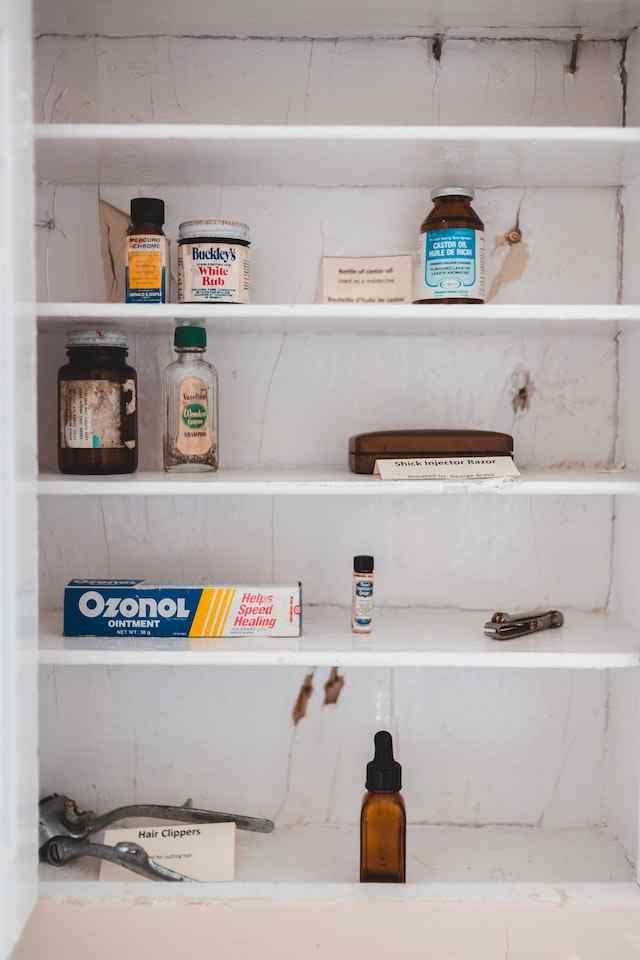
If your puppy is diagnosed with a yeast ear infection or you suspect a yeast ear infection, you must go to the vet to check if both your puppy’s ear drums are not damaged before you put anything in your puppy’s ear as treatment.
I also suggest this for any puppy ear infection.
Also, you should clean out all the debris from your puppy’s ears before applying any form of treatment.
For cleaning, I like to use thayers witch hazel and a ball of cotton wool to remove the debris from my puppy’s ears.
The witch hazel is an astringent which is going to help bind the fat, making debris easy to remove, it also contains aloe vera which is anti-inflammatory and soothing.
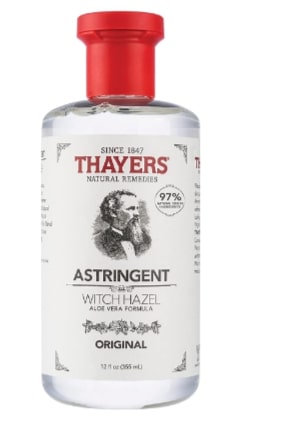
Steps to clean puppy’s ear
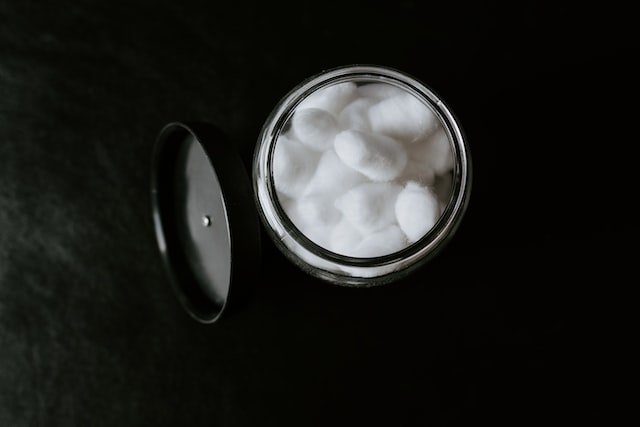
Pour in a little witch hazel in your pup’s ear, I prefer using a syringe to gently apply it, the witch hazel softens the debris and makes it easy to remove.
When you notice the debris has begun to soften, use your cotton wool to gently remove the debris.
As you clean deeper, you would have to reapply the witch hazel to soften the debris in the inner part of your pup’s canal.
Repeat the process until your puppy’s ear is clean.
How often should I clean my puppy’s ear?
It depends on how your puppy builds up debris in its ear, if you clean your puppy’s ear today and you noticed the next day that your puppy has built up debris, that means your puppy builds up debris daily, then you should clean your puppy’s ear daily.
If your puppy builds up debris every week, then you should clean your puppy’s ear every week.
Home treatment for yeast ear infection in puppies

When it comes to treating this puppy ear infection, there are a lot of expensive creams your vet may prescribe but about a year ago I found a very cheap and effective solution which is clotrimazole
Clotrimazole
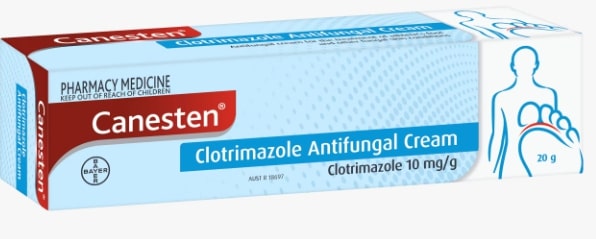
This is a very cheap anti-fungal cream that you apply to your pup’s ears, to help treat the yeast infection in the ears.
Dosage: a quarter inch of the cream per 20 lbs, squirt the cream into their ears, then rub the base of the ear well.
If you hear a squishy sound while rubbing the base of the ear, that means the cream is working its way into the canal.
Apply for 7 to 10 days.
Diet

Regardless of the root cause of why the yeast ear infection in your puppy is occurring, nutrition is the most important thing you should focus on.
The nutrition your puppy receives either supports your puppy’s immune system to keep yeast growth under control or does the opposite.
I strongly recommend an anti-yeast diet which is also called an anti-inflammatory or species-appropriate diet.
Yeasts use sugar as a source of energy and carbs break down into sugar.
So, the first thing you need to do is to remove sugar from your puppy’s diet and keep in mind that dietary sugar is not just the white stuff, it is honey, corn syrup, white and sweet potatoes, and tapioca found in grain-free dry food.
I recommend a grain-free, carb-free diet for a puppy with a reoccurring yeast infection.
From what I have seen over the years, you cannot effectively deal with yeast infection without addressing this aspect of your pup’s diet, regardless of the number of supplements you put them on.
I also suggest that you add small amounts of anti-fungal foods to your pup’s diet.
Adding a little amount of garlic, thyme, and parsley can help reduce the level of yeast in your puppy’s body.
Fermented veggies, if your pup would eat them, can also be very beneficial in reducing yeast levels.
Supplements that could help restore a healthy and normal level of yeast include probiotics, golden seal, pau D’Arco, 10 undecenoic acid and caprylic acid.
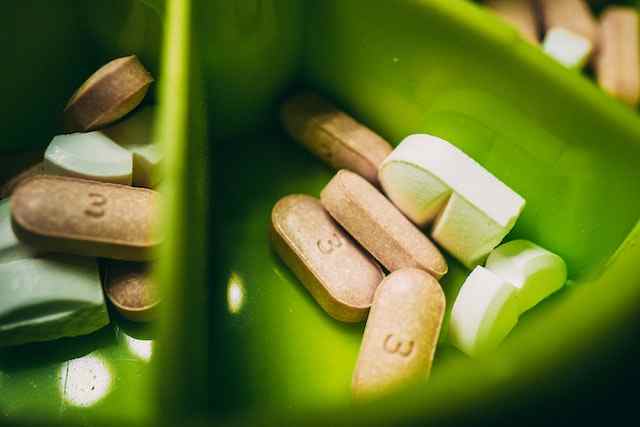
Both acids mentioned above, are organic unsaturated fatty acids which are prescribed for stubborn yeast infections.
If your puppy has a stubborn yeast ear infection and you have tried all the ways we talk about, then it is likely an immune system issue and I recommend you do an immune test on your puppy.
Bacterial ear infection in puppies

This puppy ear infection is due to bacterial infection in the ear of your puppies.
Causes of bacterial ear infection in puppies

Allergies ( if your puppy’s ear infection is induced by allergies, then you should try to find what they are allergic to).
Hypothyroidism can have various side effects which include bacterial infections,
Ear mites,
Trauma to the body ( like head injuries),
Foreign objects in the ear,
A yeast ear infection could also lead to a bacterial ear infection.
Symptoms of bacterial ear infection in puppies
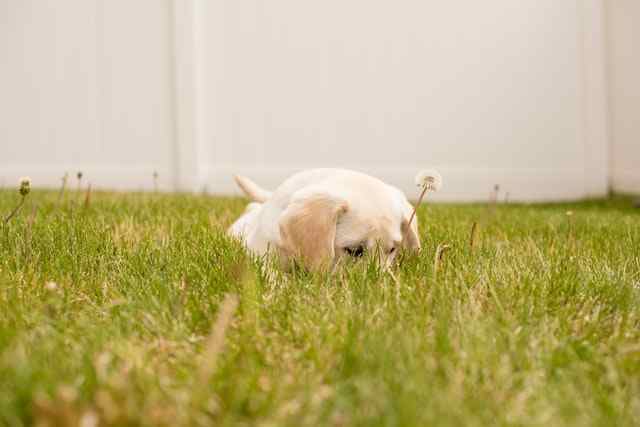
Head tilting/shaking,
Difficulty in hearing,
Redness or inflammation in or around the ear,
Yellow, brown or bloody discharge from the ear,
Odour coming from the ear,
Excessive itching of the ear.
If you see any of these symptoms, I advise you to go to your vet to confirm if, it is a bacterial infection, before taking any decision.
Treatment for bacterial ear infection
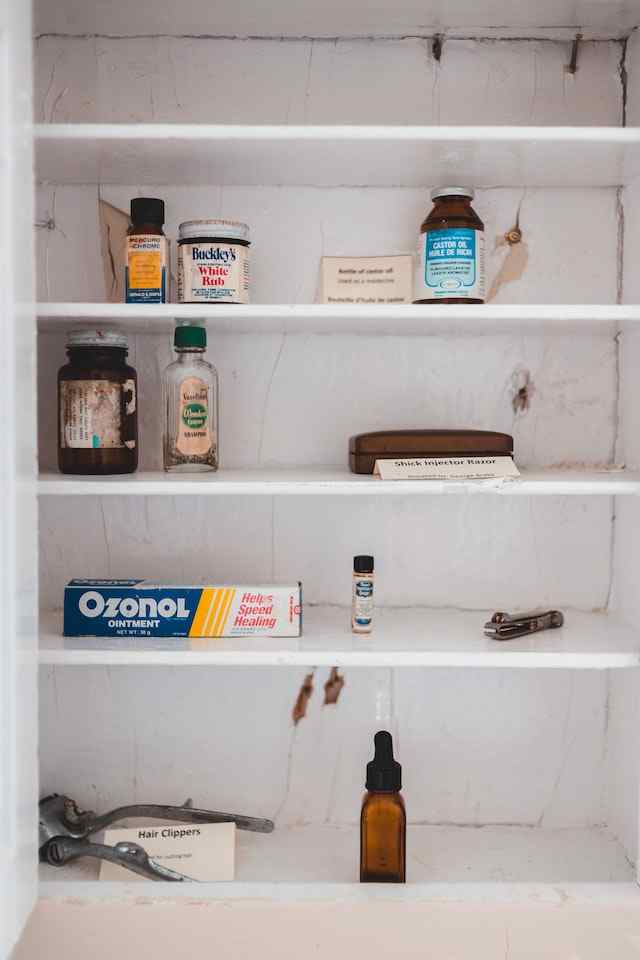
Before you try any form of treatment, I strongly suggest that you take your puppy to the vet, to check if both ear drums are not damaged, if they are not damaged, then you can proceed with treatment.
Ear drops
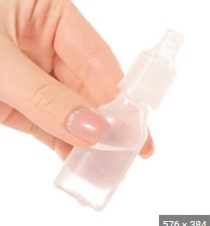
If your dog is diagnosed with a bacterial ear infection, your vet is likely to prescribe ear drops like momentum, claro, otomax, posatex, surulan, and osurnia.
Don’t just buy them over the counter and use them, ask your vet for a prescription.
Antibiotics

Oral antibiotics are sometimes used to treat bacterial ear infections in puppies, depending on the type of bacteria.
Although these antibiotics can be bought over the counter, I suggest you get a prescription from your vet.
The antibiotics that may be prescribed are enroflaxin, augmentin (amoxicillin-clavulanate), Cleocin (clindamycin), and cefbodoxime.
Natural remedies for bacterial ear infection in puppies
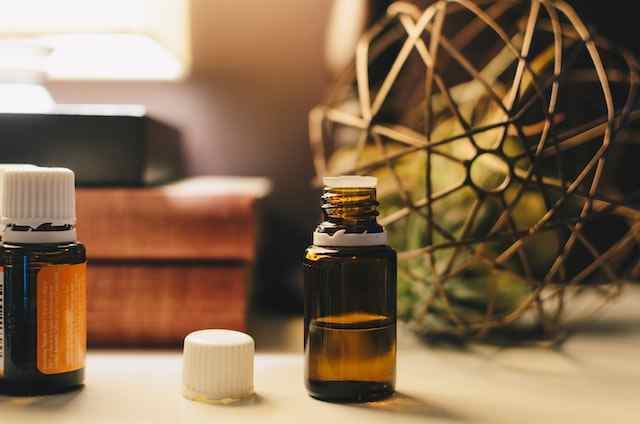
Apple cider vinegar and coconut oil

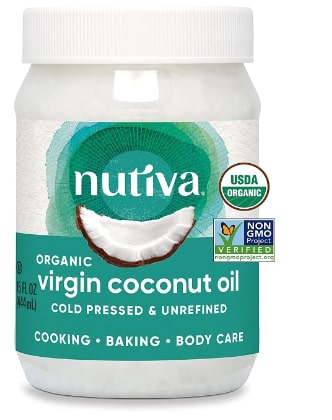
Apple cider vinegar and coconut oil both have anti-bacterial, antifungal, and anti-inflammatory properties which would treat bacterial infection.
Put two tablespoons of coconut oil and two tablespoons of apple cider vinegar in a pot.
Heat it until the coconut oil melts.
Use a syringe to administer the concoction into your pup’s ears.
Put 5 to 10 drops into the ear and rub the base of the ear, you would hear a squishy sound which means the concoction is working its way into your puppy’s ear canal.
Do this twice a day, for 7 to 10 days.
Natural remedy for both yeast and bacterial ear infection
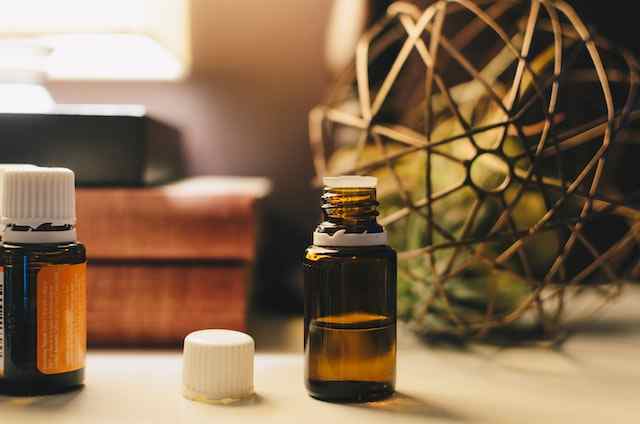
Sometimes, when your puppy has a yeast ear infection, it could cause a bacterial infection to occur, and then your puppy would have both a yeast and bacterial ear infection at the same time.
The natural remedy for bacterial infection we looked at about above is also best for this kind of situation.
Just incase you skiped it, I will put it below.
Apple cider vinegar and coconut oil
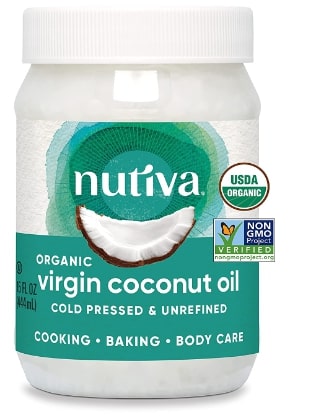

Apple cider vinegar and coconut oil both have anti-bacterial, anti-fungal, and anti-inflammatory properties which would treat bacterial and yeast infections.
Put two tablespoons of coconut oil and two tablespoons of apple cider vinegar in a pot.
Heat it until the coconut oil melts.
Use a syringe to administer the concoction into your pup’s ears.
Put 5 to 10 drops into the ear and rub the base of the ear, you would hear a squishy sound which means the concoction is working its way into your puppy’s ear canal.
Do this twice a day, for 7 to 10 days.
Frequently asked questions
Is it common for puppies to have ear infections?
Yes, it is common for puppies to have ear infections. Your puppy’s immune system is still developing which makes them more prone to infections in different parts of the body.
Can you treat a puppy ear infection with a vet?
Yes, you can treat puppy ear infections without a vet, but I strongly suggest that you should go to your vet to confirm if both or one eardrum is not damaged, before using any of the natural remedies we looked at for puppy ear infections.
Conclusion
A lot of puppies loss their hearing because their owners are ignorant about puppy ear infections.
Share this post to people who it might help ( it could be on Facebook groups or Reddit). Save a puppy from going deaf.
Related post
Swimmer Puppy Syndrome- How to prevent it from causing death in puppy
Fever in puppies – Things you need to know,to save your puppy’s life
7 MOST COMMON PUPPY SKIN INFECTION WITH PICTURES
facts about parvo vaccination that would help your puppy
Pneumonia in puppies – Everything you need to know to prevent puppy’s death